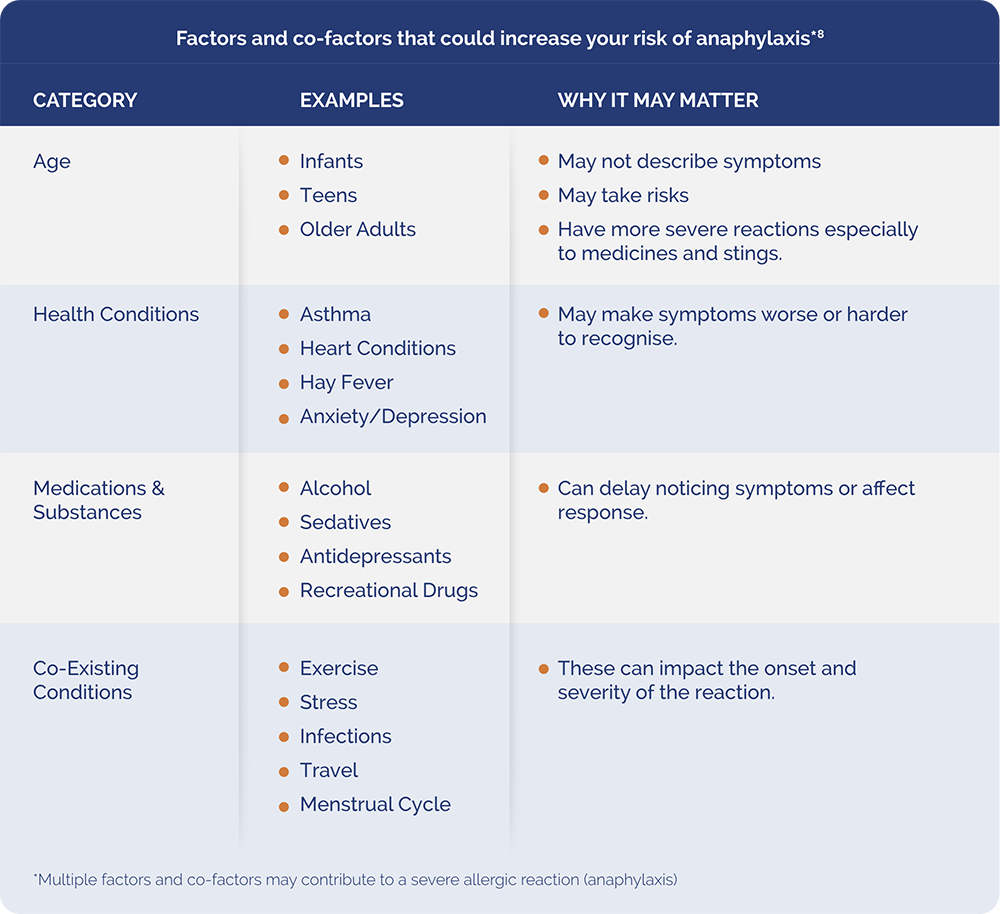
Anaphylaxis signs and symptoms
Allergy versus anaphylaxis
An allergic reaction occurs when our immune system reacts to something that is usually considered harmless to most people, such as a certain food, pollen, dust mites, insect bites or latex.1
Anaphylaxis is the most severe form of allergic reaction and can be life-threatening, because it affects the respiratory system (our ability to breathe) and the cardiovascular system (heart and blood pressure), so it should always be treated as an emergency.1,2

Warning signs
Sometimes, before an anaphylactic reaction occurs, a person experiences one or more of the mild to moderate symptoms mentioned below. These early symptoms can be a useful warning that exposure to a trigger has occurred, and that treatment may be needed.4 Speak to your doctor about the signs and symptoms of anaphylaxis (severe allergic reaction) and learn the warning signs for you or your child.
If you're unsure if anaphylaxis is occurring, it's better to use an EpiPen® Auto-Injector than not to use it.6,7
Mild to moderate allergic reaction
Swelling of lips,
face and eyes
Hives or welts
Tingling mouth
Abdominal pain,
vomiting
Anaphylaxis (Severe Allergic Reaction)
Anaphylaxis or a severe allergic reaction may involve the symptoms above but the reaction involves
the respiratory and/or cardiovascular system.2
The following symptoms below indicate anaphylaxis:2,3















